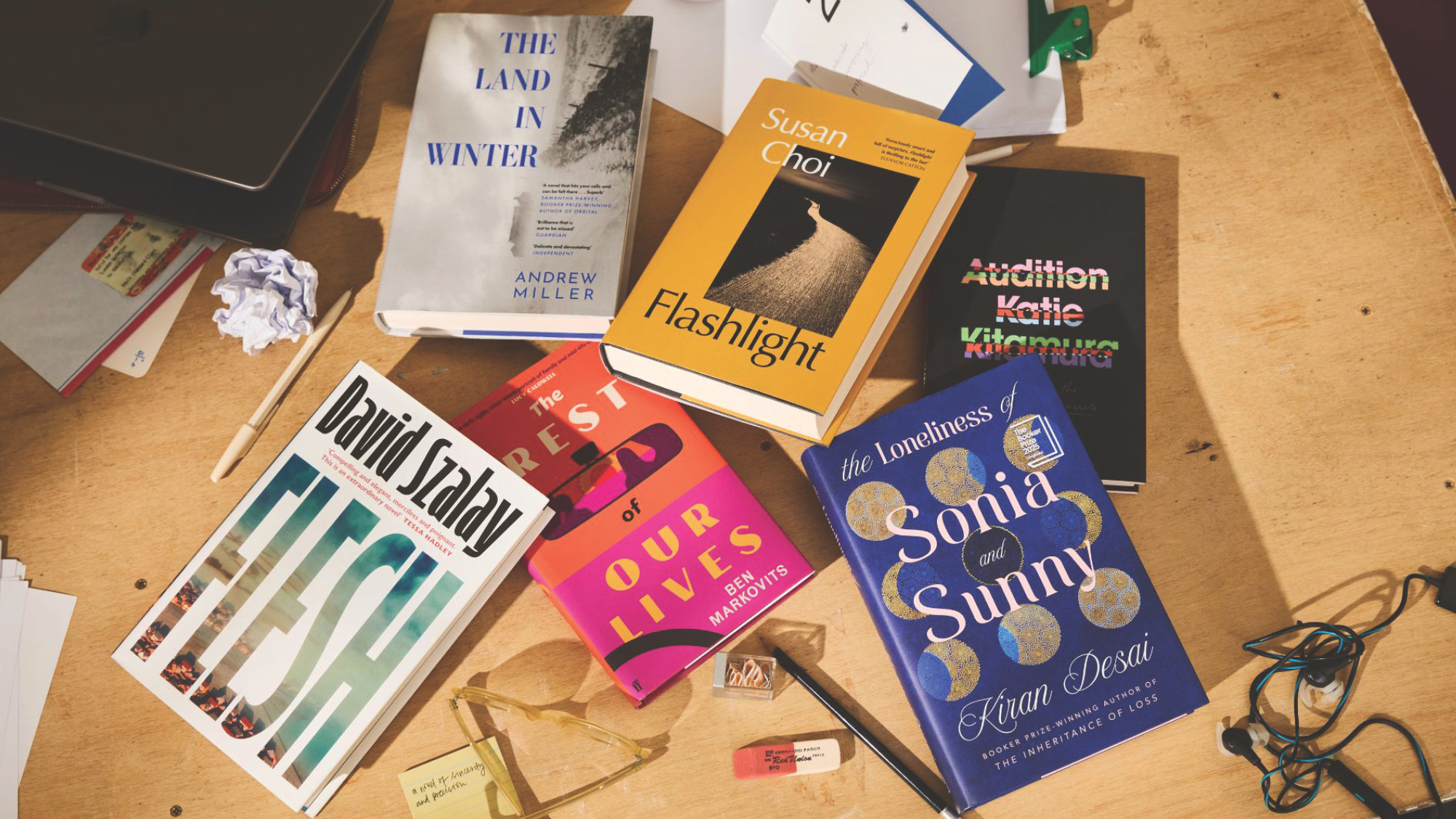A Booker shortlist for grown-ups?
Dominated by middle-aged authors, this year’s list is a return to ‘good old-fashioned literary fiction’

A free daily email with the biggest news stories of the day – and the best features from TheWeek.com
You are now subscribed
Your newsletter sign-up was successful
The Booker Prize has been criticised in recent years for prioritising youth and novelty over maturity, said Johanna Thomas-Corr in The Times. That charge cannot be levelled against the 2025 judging panel, chaired by Roddy Doyle: their shortlist, announced last week, comprises “six books by seasoned novelists between the ages of 46 and 64”. Only one, Kiran Desai – nominated for her third novel, “The Loneliness of Sonia and Sunny”, a “vast love story” set in India and America – has written fewer than six books. It’s also a shortlist that “celebrates good old-fashioned literary fiction”. The judges seem to have deliberately avoided novels relying on “gimmicky conceit or stylistic flashiness”.
Radically different approaches
That’s not quite true, said Anthony Cummins in The Observer. While there are several “inarguably well-made” novels on the shortlist – notably Andrew Miller’s “The Land in Winter”, about two newlywed couples in the West Country during the big freeze of 1962, and Benjamin Markovits’ “The Rest of Our Lives”, about a “law lecturer who makes good on a long-held vow to walk out on his wife as payback for infidelity” – there are others that are more experimental. David Szalay’s “Flesh”, comprising nine episodes in the “life of a Hungarian ex-convict who settles in the UK”, is an experiment in a kind of “anti-style”: much of the dialogue consists of the protagonist saying “OK”.
Katie Kitamura’s “Audition” is narrated by a New York actor who inhabits two “subtly yet pivotally opposed realities”. “I hated it, and yet it has remained on my mind all year” – which might be a “sign of a novel built to last the judging process”. Rounding out the shortlist is Susan Choi’s “Flashlight”, a multigenerational saga set in North Korea, America and Japan, which “turns on the legacy of a father’s disappearance”. It’s undeniably a “powerful story”, but it struggles under the weight of its own ambition.
The Week
Escape your echo chamber. Get the facts behind the news, plus analysis from multiple perspectives.

Sign up for The Week's Free Newsletters
From our morning news briefing to a weekly Good News Newsletter, get the best of The Week delivered directly to your inbox.
From our morning news briefing to a weekly Good News Newsletter, get the best of The Week delivered directly to your inbox.
‘Consistently brilliant’
Announcing the shortlist, Doyle complained about the overall quality of the 153 novels submitted: often, he said, the panel had wondered “why we had been asked to read” them. But the judges have done “extremely well”, said Lucy Thynne in The Daily Telegraph. This is “one of the most consistently brilliant” shortlists in years.
As for who will win, Desai (who won in 2006 for her last novel, “The Inheritance of Loss”) “might be most people’s tip”. Yet for my money, Miller’s “The Land in Winter” – a subtle, grown-up tale about a “1960s that isn’t yet swinging” – is “stronger”, and should be picked by the judges next month.
A free daily email with the biggest news stories of the day – and the best features from TheWeek.com
-
 How the FCC’s ‘equal time’ rule works
How the FCC’s ‘equal time’ rule worksIn the Spotlight The law is at the heart of the Colbert-CBS conflict
-
 What is the endgame in the DHS shutdown?
What is the endgame in the DHS shutdown?Today’s Big Question Democrats want to rein in ICE’s immigration crackdown
-
 ‘Poor time management isn’t just an inconvenience’
‘Poor time management isn’t just an inconvenience’Instant Opinion Opinion, comment and editorials of the day
-
 Bad Bunny’s Super Bowl: A win for unity
Bad Bunny’s Super Bowl: A win for unityFeature The global superstar's halftime show was a celebration for everyone to enjoy
-
 Book reviews: ‘Bonfire of the Murdochs’ and ‘The Typewriter and the Guillotine’
Book reviews: ‘Bonfire of the Murdochs’ and ‘The Typewriter and the Guillotine’Feature New insights into the Murdoch family’s turmoil and a renowned journalist’s time in pre-World War II Paris
-
 6 exquisite homes with vast acreage
6 exquisite homes with vast acreageFeature Featuring an off-the-grid contemporary home in New Mexico and lakefront farmhouse in Massachusetts
-
 Film reviews: ‘Wuthering Heights,’ ‘Good Luck, Have Fun, Don’t Die,’ and ‘Sirat’
Film reviews: ‘Wuthering Heights,’ ‘Good Luck, Have Fun, Don’t Die,’ and ‘Sirat’Feature An inconvenient love torments a would-be couple, a gonzo time traveler seeks to save humanity from AI, and a father’s desperate search goes deeply sideways
-
 A thrilling foodie city in northern Japan
A thrilling foodie city in northern JapanThe Week Recommends The food scene here is ‘unspoilt’ and ‘fun’
-
 Tourangelle-style pork with prunes recipe
Tourangelle-style pork with prunes recipeThe Week Recommends This traditional, rustic dish is a French classic
-
 Samurai: a ‘blockbuster’ display of Japan’s legendary warriors
Samurai: a ‘blockbuster’ display of Japan’s legendary warriorsThe Week Recommends British Museum show offers a ‘scintillating journey’ through ‘a world of gore, power and artistic beauty’
-
 BMW iX3: a ‘revolution’ for the German car brand
BMW iX3: a ‘revolution’ for the German car brandThe Week Recommends The electric SUV promises a ‘great balance between ride comfort and driving fun’